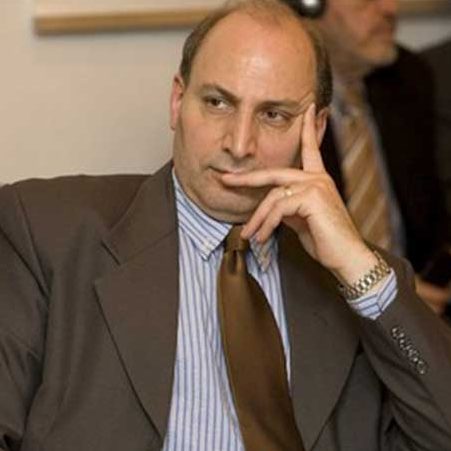State, Elites and Sovereignty in Modern Iran
Free Conference
Saturday, July 22, 2023 – 8:30 am
Innis Town Hall Theatre

Ramin Jahanbegloo is an Iranian-Canadian political philosopher. He is presently the Executive Director of the Mahatma Gandhi Centre for Nonviolence and Peace Studies and the Vice-Dean of the School of Law at Jindal Global University- Delhi-India. He received his B.A. and M.A. in Philosophy, History and Political Science and later his Ph.D. in Philosophy from the Sorbonne University. In 1993 he taught at the Academy of Philosophy in Tehran. He has been a researcher at the French Institute for Iranian Studies and a fellow at the Center for Middle Eastern Studies at Harvard University. Ramin Jahanbegloo taught in the Department of Political Science at the University of Toronto from 1997-2001. He later served as the head of the Department of Contemporary Studies of the Cultural Research Centre in Tehran and, in 2006-07, was Rajni Kothari Professor of Democracy at the Centre for the Study of Developing Societies in New Delhi, India. In April 2006 Dr. Jahanbegloo was arrested in Tehran Airport charged with preparing a velvet revolution in Iran. He was placed in solitary confinement for four months and released on bail. He was an Associated Professor of Political Science and a Research Fellow in the Centre for Ethics at University of Toronto from 2008-2012 and an Associate Professor of Political Science at York University in Toronto from 2012 – 2015. He is also a member of the advisory board of PEN Canada. He is the winner of the Peace Prize from the United Nations Association in Spain (2009) for his extensive academic works in promoting dialogue between cultures and his advocacy for non-violence and more recently the winner of the Josep Palau i Fabre International Essay Prize. Ramin Jahanbegloo is also the founder of a nonviolent movement called Nonviolence Without Borders
Among his thirty-two books in English, French, Spanish, Italian and Persian are: Conversations with Isaiah Berlin (Peter Halban, 1992), Gandhi: Aux Sources de la Nonviolence ( Felin , 1999), Penser la Nonviolence (UNESCO,2000),Iran: Between Tradition and Modernity (Lexington Books, 2004) India Revisited (Oxford University Press, 2007), The Clash of Intolerances (Har-Anand 2007) The Spirit of India (Penguin 2008), Beyond Violence (Har-Anand 2008), Leggere Gandhi a Teheran (Marsilio 2008), Talking Politics (Oxford University Press 2010), Civil Society and Democracy in Iran (Lexington Press, 2011), Democracy in Iran (Palgrave 2013) The Gandhian Moment (Harvard University Press 2013) Introduction to Nonviolence (Palgrave 2013)Time Will Say Nothing (University of Regina Press 2014) Talking Philosophy (Oxford University Press 2015) The Decline of Civilization (Aleph Books 2017) On Forgiveness and Revenge (University of Regina Press 2017), The Disobedient Indian: Gandhi’s Philosophy of Resistance ( Speaking Tiger 2018) , The Global Gandhi (Routledge 2018) The Revolution of Values: The Moral and Political Philosophy of Martin Luther King, Jr. (Lexington Press 2018) Albert Camus: The Unheroic Hero of Our Time (Routledge 2020), The Courage to Exist: A Philosophy of Life and Death in the Age of Coronavirus (Orient Black Swan 2020), Pedagogy of Dissent (Orient Black Swan 2020), In Pursuit of Unhappiness (Orient Black Swan 2020) Nonviolent Resistance as a Philosophy of Life (Bloomsbury 2021), Gandhi and Nonviolent Peace (Routledge 2021), The Gandhian Paradigm (with Pooja Sharma) (Rupa Publishing 2022) and more recently Nonviolence: An Idea Whose Time has Come (Haus Curiosities 2023)
Abstract
Despite his unsystematic method, Foroughi may be considered as one of the earliest intellectuals and statesmen in Iran to pay serious attention to modern philosophy and to issues of rationality in modern Europe. Foroughi’s effort to preserve Iran’s nationhood and national unity was accompanied by the creation of a strong central government as an essential prerequisite for reform and progress and for freeing the country from foreign intervention. But in the shadow of the strong character of Reza Shah Foroughi was able to elaborate his philosophical proximity with French thinkers like Montesquieu in essays and books which somehow completed his dialogical approach to modernization. He also valued national symbols of Iran and respected the traditions, while he appreciated modern thinking and encouraged Iranians to have an investigative spirit.